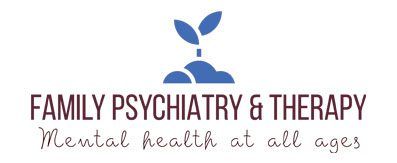Shocking, dangerous and frightening events can cause a veritable tide of adverse effects, including stress, nightmares and the loss of trust in other people. More often than not, these negative reactions will improve with time as memories of the event begin to fade and lessen in severity. However, in some situations, these individuals continue to experience emotional or behavioral problems, disrupting their lives and making it significantly harder to complete daily tasks and build meaningful relationships of trust and affection with other people. Those who continuously suffer from upsetting thoughts, fears and behaviors after their traumatic event for longer than three months may be diagnosed with PTSD (post-traumatic stress disorder), a condition of persistent mental and emotional stress that usually results from injury or extensive psychological shock.
Regrettably, many victims of PTSD forgo professional evaluation and treatment by experienced psychiatrists, forcing them to suffer through the intense effects of their condition without help or support. If you’re worried that one of your loved ones might have PTSD, it’s imperative to find professional aid for them as soon as possible. Here at Family Psychiatry and Therapy, we value the health and happiness of your family just as much as you do, and that’s why we work tirelessly to provide you with all of the counsel and resource you need to protect them from psychological issues and disorders. Today, we’ll be discussing the best ways to recognize PTSD in your spouse and what you can do to help them.
Understanding PTSD and Its Symptoms
According to the National Institute of Mental Health (NIH), not every traumatized person develops ongoing (chronic) or short-term (acute) PTSD. Moreover, it asserts that not everyone with PTSD has been through a specific dangerous event. In some cases, traumatic experiences that cause substantial emotional pain (including divorce or the loss of a family member) can cause PTSD. For the most part, symptoms of PTSD begin to manifest within three or four months after the traumatic incident occurs, but they can also begin several years afterward, making it incredibly challenging to determine whether one of these difficult experiences will cause symptoms of PTSD at some point in life.
The NIH states that an adult must exhibit all of the following symptoms for at least one month in order to be officially diagnosed with PTSD:
-
- At least one re-experiencing symptom
-
- At least one avoidance symptom
-
- At least two arousal and reactivity symptoms
- At least two cognition and mood symptoms
Re-experiencing symptoms usually take the form of flashbacks, nightmares or incessant frightening thoughts. These will usually be accompanied by physical symptoms, including intense sweating or a racing heart. As you might expect, symptoms like these can make it very difficult for victims of PTSD to effectively perform all of their responsibilities at work and at home, particularly if they’re constantly exposed to situations or sounds that trigger their symptoms. For example, a soldier with PTSD might experience constant triggers when working at a job that involves loud machinery or other sources of intense sound that are similar to gunfire or explosions.
Avoidance symptoms include staying away from places, events or sounds that evoke thoughts of traumatic experiences and attempting to avoid thoughts or feelings related to them. Referencing back to our last example, a soldier with PTSD might quit his current job to avoid the triggering sounds that he is constantly experiencing throughout the day.
Arousal and reactivity symptoms often manifest as difficulties with sleeping or remaining calm. Afflicted individuals might also experience sudden fits of anger or an ever-present sense of tension. Bear in mind that these symptoms are constant (as opposed to being triggered only when the individual thinks of or experiences things that remind them of their trauma).
Cognition and mood symptoms include intense feelings of guilt and blame, negative and critical thoughts about oneself or the world around them and loss of interest in enjoyable activities. These symptoms make it significantly harder for PTSD victims to stay connected with friends and family.
Note: For more information on these symptoms and how they affect victims of PTSD differently, be sure to visit the NIH’s page on post-traumatic stress disorder.
What to Do if Your Spouse Exhibits Symptoms of PTSD
If your spouse is exhibiting more than a few of these symptoms, we highly recommend seeking aid from a qualified psychiatrist. These mental health professionals can officially diagnose your partner’s condition and provide your family with proven coping strategies and techniques to manage and mitigate his or her symptoms. And even if your spouse’s difficulties aren’t stemming from PTSD, an evaluation from a psychiatrist is the fastest and easiest way to get them help and start them on the path toward recovery and mental well-being.
Family Psychiatry and Therapy offers a wide range of psychotherapy solutions for both children and adults with PTSD. By utilizing cognitive therapy, exposure therapy, eye movement desensitization, reprocessing and more, we can help your loved one with regaining control over their lasting fear or anxiety after a traumatic event. In more severe cases, we may also make use of antidepressants, anti-anxiety medications or Prazosin to improve sleep and concentration, relieve stress and suppress insomnia or recurring nightmares. Together, we can find the best treatment possible for your partner and give them all of the tools they need to overcome their PTSD and live a happier, healthier life.
Contact Family Psychiatry and Therapy Today
If you’re interested in working with Family Family Psychiatry and Therapy, then call or message us to request an appointment today! Moreover, don’t hesitate to reach out to us if you require any additional support while helping your loved one with PTSD and its symptoms. We would be more than happy to connect you with more advice, knowledge or anything else you need.



